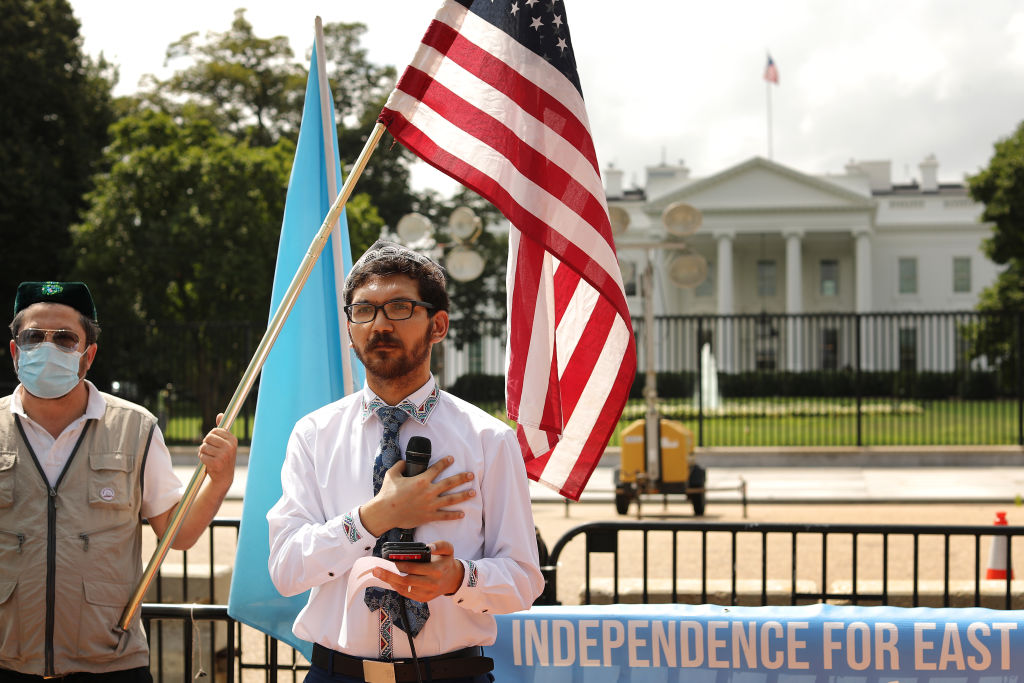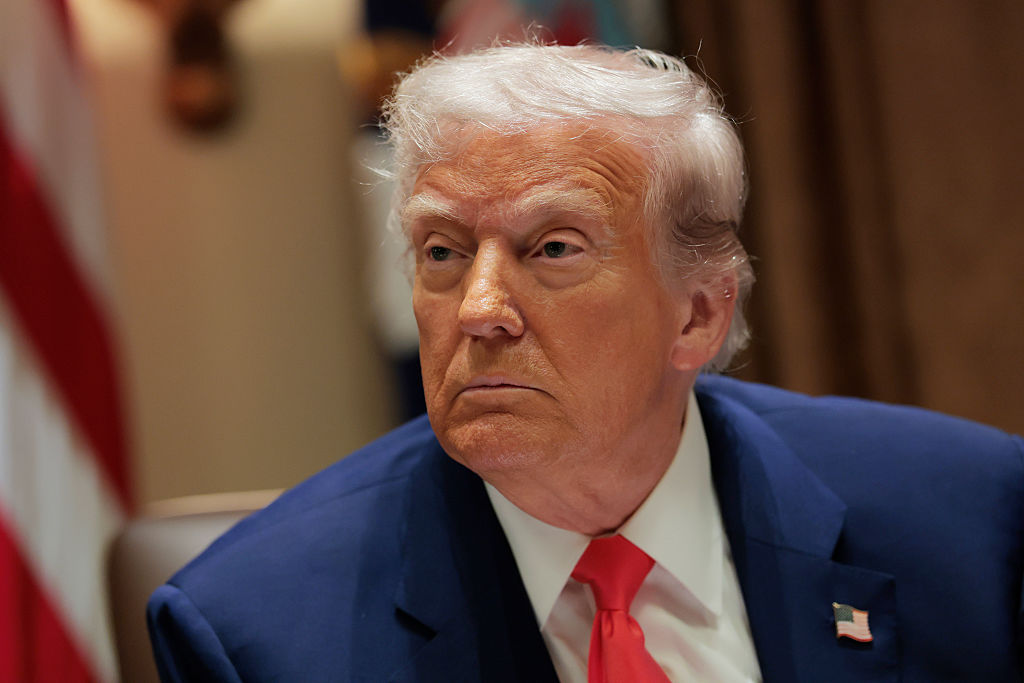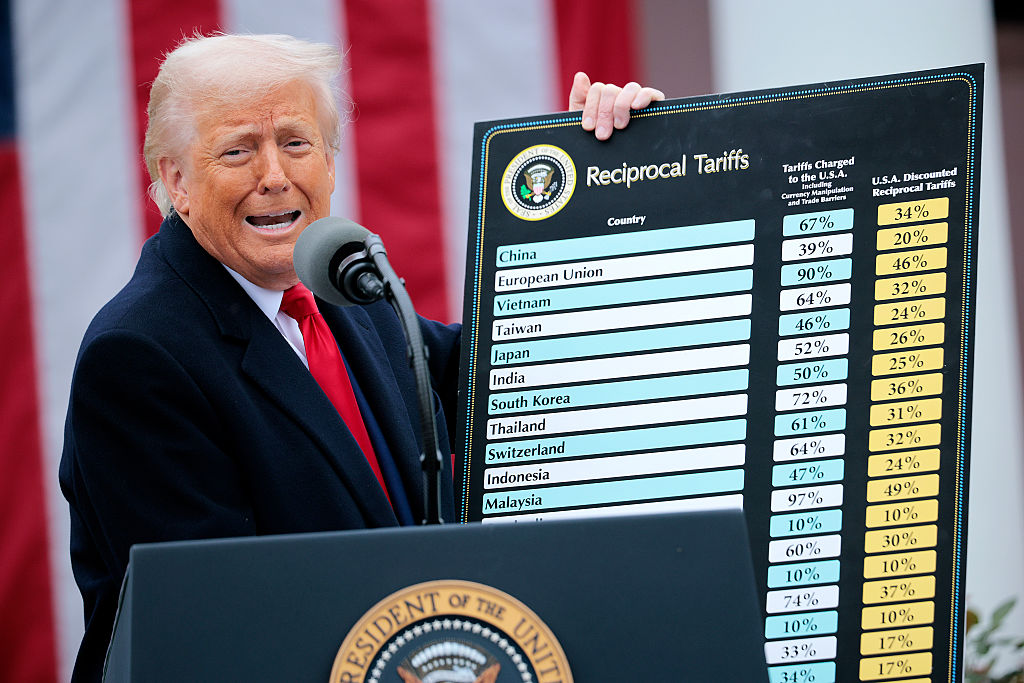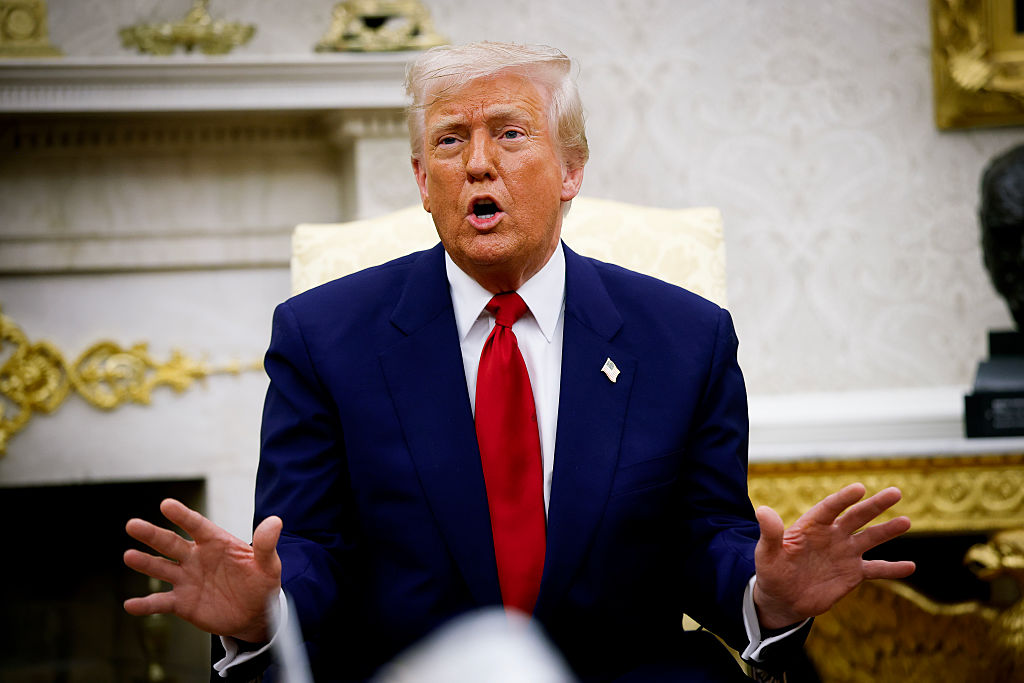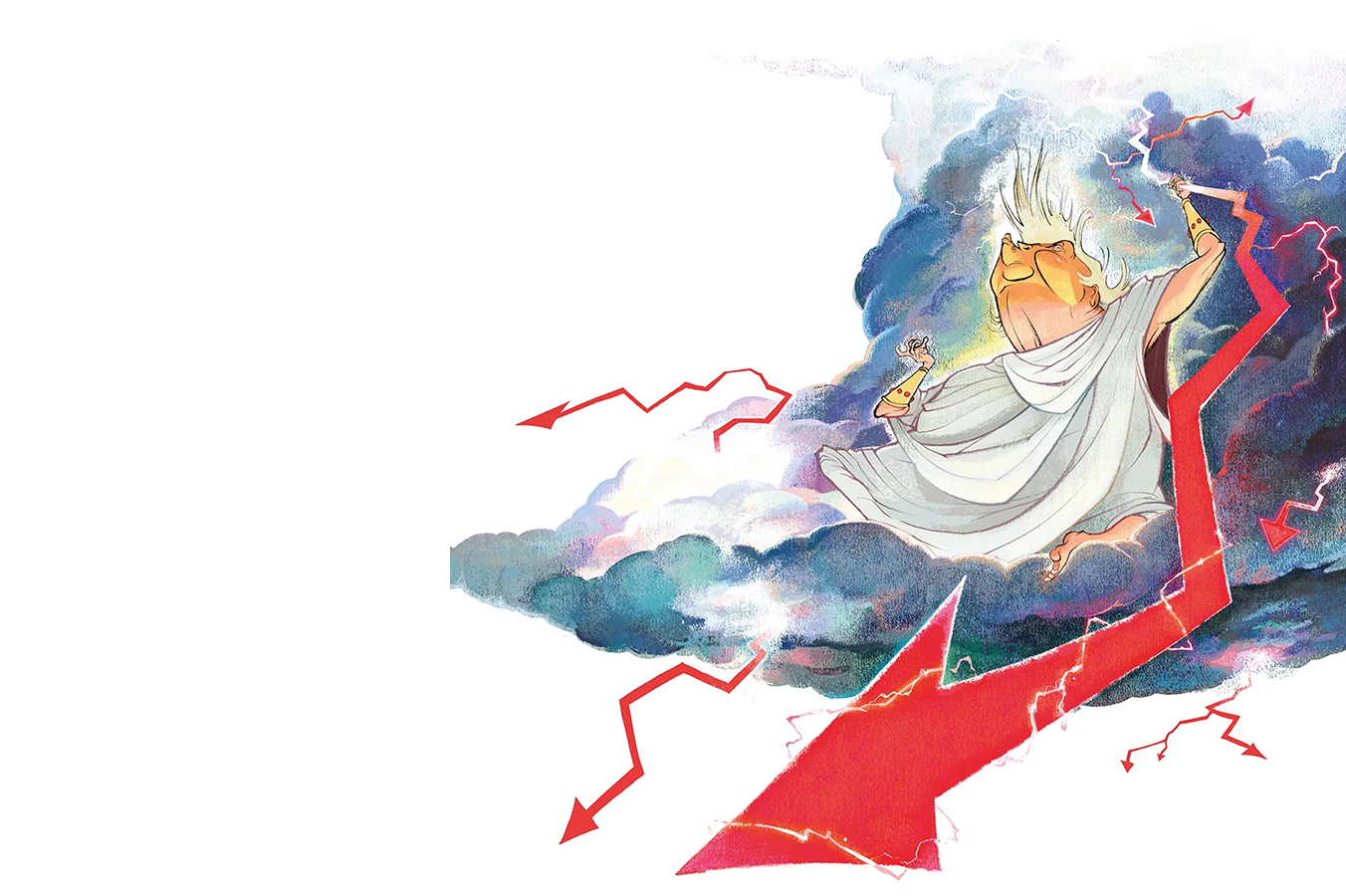It has been more than two years since Ziba Murat has heard the voice of her ailing mother, Gulshan Abbas, a retired physician who was abruptly ‘disappeared’ in September 2018 in Xinjiang province, China.
While exact facts and figures are hard to come by, it is widely reported that at least three million Uighurs in China have been forced into concentration camps, which Beijing calls ‘reeducation’ facilities for stamping out ‘Islamic extremism’. The scale of the ongoing atrocities is bone-chilling: from forced sterilizations and sexual violence to beatings and indoctrination.
The Chinese government’s assault extends to Uighurs abroad.
In Virginia, some 7,000 miles from Xinjiang, Murat’s advocacy for her mother’s release has brought her frequent threats and Chinese Communist party-connected telephone calls.
‘Often [Uighurs’] family members in China will be coerced into filming videos to tell their relatives abroad to stop activism and that they are fine and thankful to the Communist party,’ says Murat. ‘Many of these are filmed under very obvious coercion. It’s mental torture for all involved… It is a very difficult situation; the Chinese embassy refuses to give us information on missing family members.’ Murat’s predicament is far from an isolated case. More and more members of this embattled community of Turkic Muslims are coming forward with nightmarish tales of persecution.
Salih Hudayar is prime minister of the East Turkistan Government in Exile, a Washington DC-based group which rejects both China’s claim to the area and the name ‘Xinjiang’, or ‘New Territory’. According to Hudayar, the CCP targets American Uighurs through online surveillance, harassing phone calls, and phishing emails, as well as using agents to intimidate, collect information on, and sabotage Uighur groups.
‘They have even managed to infiltrate Uighur organizations,’ he says. ‘China has actively used the fact that almost all the Uighurs in the US have relatives back [home] to discourage [them] from attending protests and speaking out against the atrocities. Uighurs effectively have their relatives in East Turkistan held hostage by the Chinese government; they are easily coerced into spying on fellow Uighurs.’
Since I started probing the peculiar disappearances of Muslims inside Xinjiang almost five years ago, anecdotes of offshore targeting have swelled.
Kuzzat Altay, president of the Uighur American Association, says that Chinese police are ramping up their calls to Uighurs in the US, especially newcomers and the younger generation, and threatening to imprison family members if they don’t agree to spy here.
They’re ‘assigned different tasks… like finding out WiFi passwords or sending pictures of protests,’ Altay explains. ‘It’s a very difficult situation, and it is increasing with the increasing recognition that what is happening is a genocide.’
Some prominent activists say they’ve been tracked down several times. Boston based Samira Imin says government representatives have knocked on the door of a family home in Xinjiang and looked for her in the US.
‘They have made many attempts to interfere with my freedom of speech.’ For others, like the medical professional who has lived quietly in the Midwest since seeking asylum almost two decades ago, the uncertainty is jarring.
‘I can’t trust anyone in the Uighur community,’ she says, asking that her name not be published for safety reasons. ‘If I want to give support, I can only give cash through other people. I don’t talk to anyone. I cannot put my name on anything in case the Chinese government receives my information. Nothing good comes from trying to speak out; nothing changes.’
How are the Uighurs hunted down offshore? In large part, it starts with the WeChat Chinese messaging app and TikTok, their only means of connection with loved ones inside China. Police worm their way into ‘private’ threads and warn dissidents to remove any negative talk from social media, on pain of never seeing loved ones again.‘A unique attack vector that Chinese state sponsored operators have used is taking the smartphones or computers of their targets during border crossings or other state mandated inspections and implanting spyware,’ explains Randy Pargman, vice president of threat hunting and counterintelligence at the cybersecurity company Binary Defense. ‘Another is state-sponsored malware that typically has capabilities to record phone calls, record nearby audio through the microphone, and steal messages from chat apps.’
A 2019 analysis by the Carnegie Endowment found that Chinese surveillance technologies are in use in more than 60 countries, thus subsidizing both oppression and the development of even more sophisticated models and technology. Pargman says that the spyware used by state-sponsored threat groups often includes sophisticated, large scale collection capabilities, even down to the keystrokes typed on a keyboard, so that the Chinese government’s intelligence operatives can be aware of documents and messages as they are created, even in draft form.
‘Regardless of where in the world Uighurs are located, China can still target anyone they consider to be a threat through cyber-espionage,’ he says. According to Pargman, the Chinese government is able to implant undetectable spyware on people’s phones ‘simply by convincing them to tap a link to a website and opening the web page on their phone’s browser’.
The prospects of resolving the problem of Chinese pressure on Uighur expats are poor until there’s momentum toward resolving problems with the Chinese regime as a whole.
On his way out the door, Donald Trump declared Chinese actions against Uighurs and other ethnic minorities a ‘genocide’. But the Biden administration has sent mixed signals. The administration has said the genocide declaration is under review, and Biden has simultaneously suggested that the camps could be explained by ‘different [cultural] norms’, while asserting that he’d advised Xi about ‘repercussions’, including at the United Nations. Who knows Biden’s secretary of state Antony Blinken will bring up the Uighurs when he meets his opposite number Wang Yi in Alaska today?
For years the United Nations has been expressing ‘deep concern’ over the Xinjang detention camps. Nevertheless, Beijing was elected to the Human Rights Council last October.
This article was originally published in The Spectator’s April 2021 US edition.



